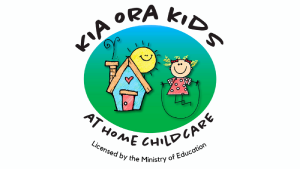Early childhood education (ECE) jobs in New Zealand offer an incredibly rewarding career for individuals passionate about supporting young children’s growth and learning. However, the employment landscape is complex, shaped by evolving government policies, market forces, diversity goals, and professional development needs. As New Zealand strives to strengthen and diversify its ECE workforce, both opportunities and challenges arise for those entering or advancing in the field.
Building a Diverse Workforce: Progress and Barriers
One of the sector’s ongoing priorities is attracting and retaining a diverse ECE workforce that reflects New Zealand’s rich cultural makeup. Unfortunately, systemic barriers persist. Teachers from minority backgrounds often face unconscious biases during recruitment, and many early childhood centres still lack culturally inclusive practices that would support and retain a diverse staff (Griffiths et al., 2022).
However, progress is being made. Government policies now explicitly encourage workforce diversity, and targeted recruitment strategies are opening doors for a broader range of educators. Centres like Kia Ora Kids offer a flexible home-based education model that supports diversity not only in their educators but also in the families they serve. By offering culturally responsive training and mentoring, they help ensure that all children can see themselves reflected in the people who care for and teach them.
How Educators Perceive and Embrace Diversity
Inside early childhood centres, individual educators play a critical role in how diversity is experienced by children and families. Studies show that teachers’ personal attitudes towards cultural and linguistic diversity greatly influence whether they perceive it as an enriching opportunity or a difficult challenge (Shuker & Cherrington, 2016).
Educators with a positive disposition towards difference, especially those who receive ongoing professional development, are more likely to create inclusive, welcoming environments. Meanwhile, those who lack training and support often find it difficult to respond effectively to diverse needs. Providers like Kia Ora Kids bridge this gap by emphasizing cultural competence and encouraging their educators to engage in continuous learning. In doing so, they help make diversity not just a demographic fact, but a daily practice of inclusion and celebration.
Effects of the Market-Based System on Jobs
The structure of early childhood education jobs has also been heavily influenced by New Zealand’s market-driven approach to service provision. While opening the sector to competition initially expanded options for families and created new job opportunities, it has also introduced significant inequalities (Mitchell & Davison, 2010).
For educators, this means that while early childhood jobs are available in many parts of the country, their quality and stability can vary dramatically. Some services prioritize profit over educational outcomes, resulting in higher workloads, lower wages, and reduced professional satisfaction. In contrast, community-oriented and home-based models, like those offered by Kia Ora Kids, prioritize genuine relationships, child-centered learning, and educator support, offering a more sustainable and fulfilling work environment.
Qualifications: Raising Standards and Creating Barriers
Another major shift in the ECE sector has been the push for a fully qualified workforce. The government’s efforts to raise qualification standards have greatly improved the professional status of early childhood educators, making it a more respected career path (Dalli, 2010).
However, this drive for professionalization has not come without costs. Higher qualification requirements have unintentionally created barriers for individuals without formal training, particularly for older adults, people from non-English speaking backgrounds, and those seeking career changes. These barriers have led to workforce shortages in some areas, especially rural communities. Home-based services like Kia Ora Kids offer an important entry point for those passionate about early childhood jobs but needing a more accessible and flexible pathway into the profession. Through ongoing training and support, they help bridge the gap between passion and qualification.
Professional Development: A Constant Need
In a policy environment characterized by frequent change, professional development has become more critical than ever. Teachers need access to flexible, responsive learning opportunities to keep pace with shifting regulations, curriculum updates, and emerging best practices (Cherrington, 2017).
Unfortunately, barriers such as lack of funding, limited time, and inconsistent institutional support often make it difficult for educators to access meaningful professional learning. Providers like Kia Ora Kids recognize this and prioritize professional development as a core part of their model. By offering accessible training and building strong educator networks, they ensure that their team members can continue to grow, adapt, and thrive in a changing sector.
Why Home-Based Education Could Be Your Future
For those considering a career in early childhood education, home-based education offers a unique and attractive option. Working as a home-based educator with Kia Ora Kids allows you to design a career that fits around your family and lifestyle, while providing high-quality, personalized care and education for children. You can work from your own home, set your own hours, and build meaningful, lasting relationships with both children and their families.
Beyond flexibility, Kia Ora Kids provides robust professional support, ongoing training, and a commitment to cultural inclusion that ensures educators are well-prepared and confident in their roles. Whether you are new to the sector or looking for a more supportive environment to continue your career, home-based education could offer the ideal opportunity to combine passion, purpose, and professional growth. If you are ready to make a difference in children’s lives while enjoying a rewarding and flexible early childhood job, learn more about becoming a home-based educator with Kia Ora Kids here.
References:
- Cherrington, S. (2017). Professional learning and development in early childhood education: A shifting landscape of policies and practice. The New Zealand Annual Review of Education, 22, 53.
- Dalli, C. (2010). Towards the Re-Emergence of a Critical Ecology of the Early Childhood Profession in New Zealand. Contemporary Issues in Early Childhood, 11, 61 – 74.
- Griffiths, V., Hall, E., Hartley, D., Hohaia-Rollinson, F., Malcolm, J., Purdue, K., & Tate, A. (2022). Attracting diverse kaiako to and retaining them in early childhood education in Aotearoa New Zealand. Teachers’ Work.
- Mitchell, L., & Davison, C. (2010). Early Childhood Education as Sites for Children’s Citizenship: Tensions, challenges and possibilities in New Zealand’s policy framing. , 8, 12-24.
- Shuker, M., & Cherrington, S. (2016). Diversity in New Zealand early childhood education: challenges and opportunities. International Journal of Early Years Education, 24, 172 – 187.

